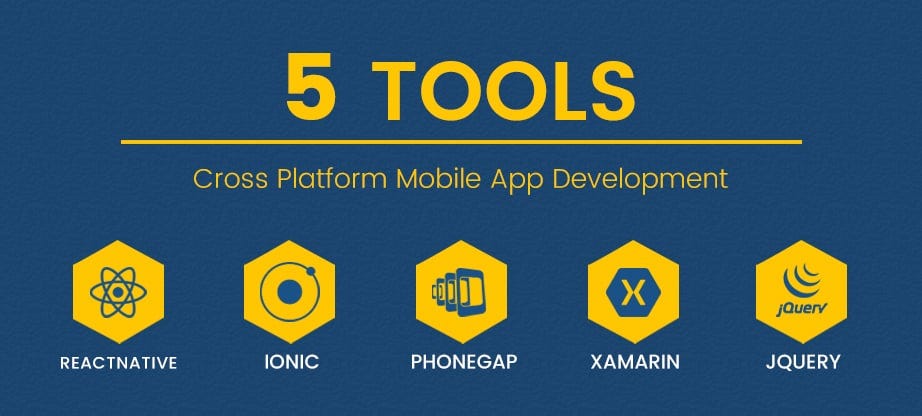
Converting an interesting theme or an idea into a mobile app seems to be a delightful and welcoming thought. But, the question arises when we are in a real fix to decide about the platform choice and the budget. And, that's all where the difference starts. At present, though the Android and iOS are the leaders in introducing a new app, they carry their own merits and demerits.
In parallel, we have the cross-platform mobile app development which enables the developers to re-use the code and thus reduce the development time. Yet, the apps developed could be sophisticated and user-friendly. As the same code is shared between the multiple platforms, the time is lessened and there is less likely to have an error. Well, once the choice is made between the native and the cross-platform apps, the tools that could be used for it has to be explored to make an authentic choice as per the budget and the need. Let us explore the different tools a mobile app development company could use while building the apps.
Xamarin: The tool facilitates the developers to use C# codebase for creating the Android, iOS, Mac, and the Windows apps. It has the ability to add the plugin functionality like the barcode scanner, in-app bill, and, other custom controls. Further, there are new ones developed too. Moreover, the versions are free to use after its acquisition by Microsoft.
Titanium: The interesting fact about the Titanium app is that it has the ability to create “native” apps on Android, Windows, and iOS using the JavaScript Codebase. In the absence, the developer may make the “module” written in native code. The Titanium can really create wonders in developing apps that are close to native ones.
Apache Cordova: The main advantage is that the application developed for Android could be easily ported to other platforms. The knowledge of web technologies like HTML 5, CSS3, and JavaScript is sufficient to get involved in the development and increase the user base.
React Native: Nowadays, several cross platform mobile app development companies rely on react-native as it gives an effective developer's experience; reusability of the codes; server-side rendering; declarative API; easy reloading; debugging tools, and so forth.
Ionic: The development requires less time, efforts, and resources; provides a complete and unified look and feel. As it deploys standard tools with a single code base, the development of apps could be done at a rapid phase and more efficiently. Thus it is cost-effective too.
The other tools include Qt, Sencha, Codename, Kony, Convertigo and more. In a nutshell, cross-platform tools are gaining traction as they are cost-effective, less time consuming, and user-friendly to use across the mobile platforms.
We, at Mobibiz, are a leading team of app developers in Gurgaon that is renowned for creating exceptional mobile apps for diversified requirements. Our team holds expertise in various mobile platforms such as Android, iOS, Windows, and more. We also cater advanced cross-platform apps for businesses that look for advanced yet cost-effective solutions.




